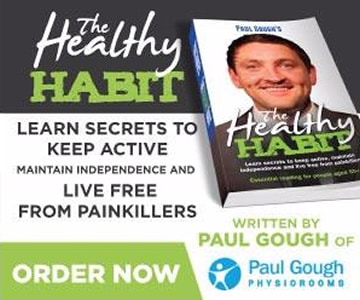If the cold wind drops this weekend, chances are you might be tempted to head out for a run and claim your first rush of “endorphin” – the chemical that creates the euphoria you experience during and after a run.
No matter what sport you play – or even if all you’ve ever done is “run a lamp-post walk a lamp post” trying to get a little fitter or trimmer, then you will have experienced it.
And lots of people are addicted too it.
Some people say it gives them “clarity”, others like Ronnie O’Sullvan argue it is good for keeping stress levels in check and others report feeling “euphoric”.
Now, if you don’t know what it is, it’s basically a neurochemical that gets released around your body – one of FOUR neurochemicals which make you feel a little happier.
But here’s the thing:
Endorphins did NOT evolve for “good times” as many people assume.
In fact, there purpose is the complete opposite.
See, endorphins are triggered by physical pain. Think of taking a “knock”, a fall, or landing awkwardly on your ankle – you might have got up thinking you were fine, only to find yourself in pain a little later (the next day is usually worse!).
The extra 30 minutes you were able to walk back home or continue to play is thanks to endorphin. It masks pain for a short time ONLY to give you a chance to reach safety.
It goes back to the days when we were “hunter gatherers” and if your ancestor broke his leg while out hunting, or got worn down by hunger and thirst, the oblivion of endorphin helped him keep doing what it took to save himself.
“Runners high” might be a well-known endorphin experience. But a regular daily run does not always make you high.
That’s because you have to push your body beyond it’s current capacity to the point of distressing your body to get that same good feeling.
Ever noticed why you’re always tempted to want to “kick in” and run that little bit faster at the end of the run as your home is in sight?
That’s because there’s a chance you haven’t got the high you went out looking for – so you try to force it by pushing your self right to the end!
This also explains why so many people drop off from running clubs or lose motivation or enjoyment from something that once gave them so much pleasure.
And on the reverse, may also explain why some people tell you they’re addicted to running and just have to keep pushing themselves more and more and more – running everyday until eventually something gives!… like a stiff lower back, an ankle, an Achilles or calf problem or a knee injury which stops them and causes a huge void in their ability to feel “high”!
So, how do you avoid the endorphin disappointment?
Here are three ideas:
1.) Exercise differently – when you are always repeating the same exercise, you are always activating the same muscles and neglecting the same muscles. If you try to KEEP getting endorphin from the same old exercise routine, you are likely to over-work a few spots beyond their ability to repair themselves.
2.) Stretch – Most people don’t realise it, but endorphin is released when you stretch. And everyone can add it to a routine whether sat at work, in a chair, waiting in line, or even in the shower on a morning!
3.) Make exercise fun – running everyday can be boring and very monotonous… no good for mental stimulation or your physical health. Try ANYTHING to changing it – from activities like mountain climbing, tubing, rowing, kayaking, dancing, hiking, biking even gardening! They’re all great for endorphin releases and this is something I’d urge you to consider BEFORE you establish your summer fitness routine.
Go here for more fitness tips: www.paulgoughphysio.com/sports-injury-clinic


